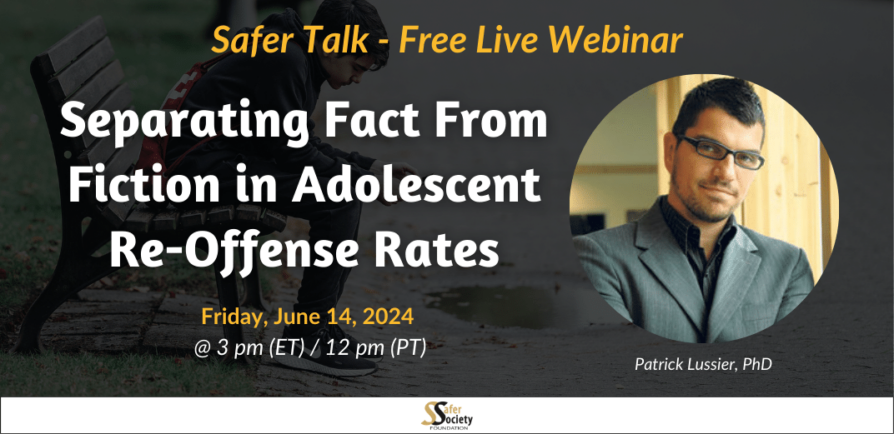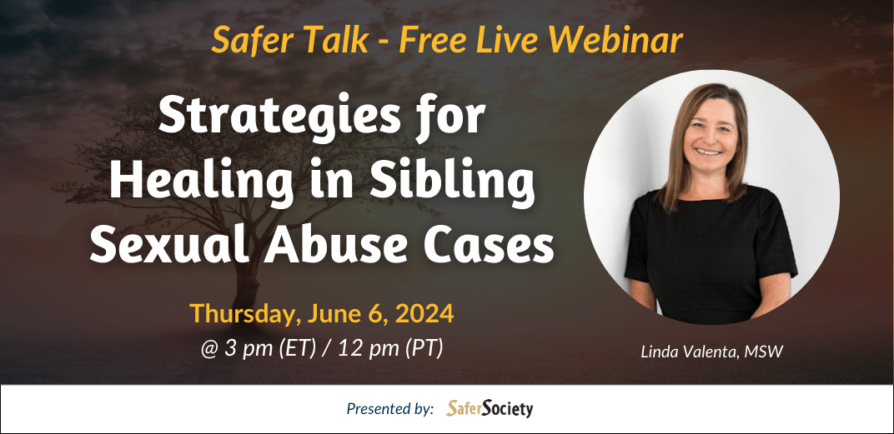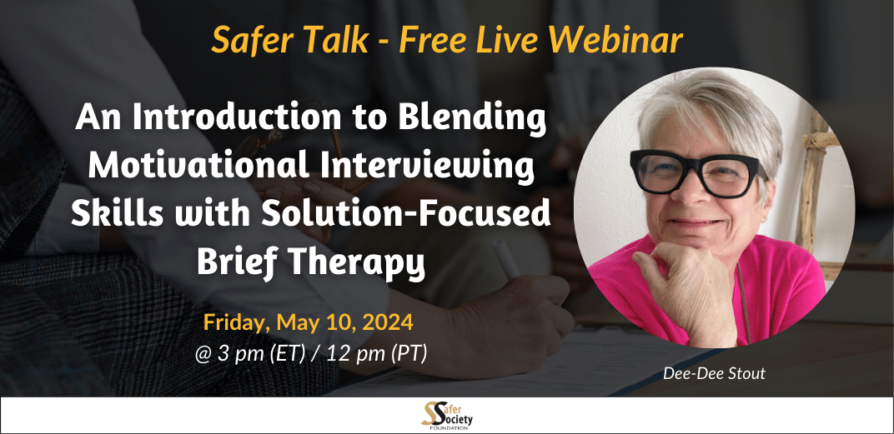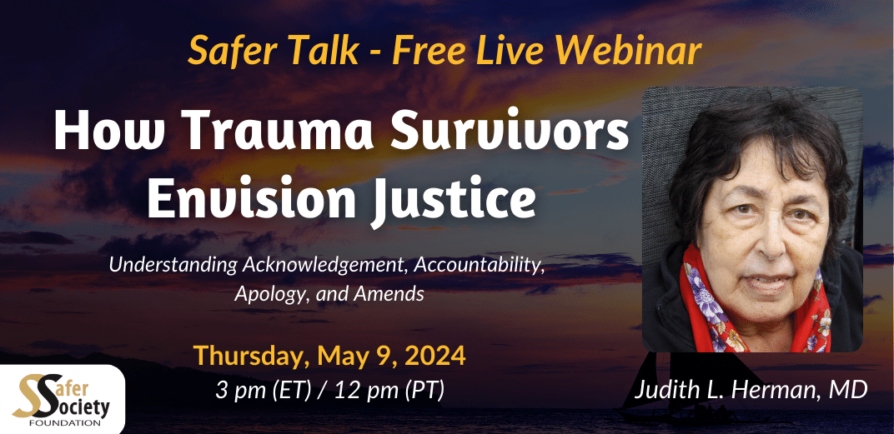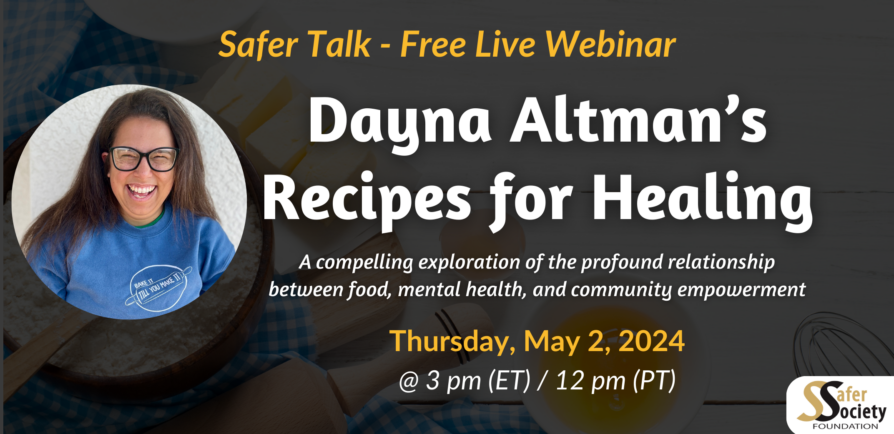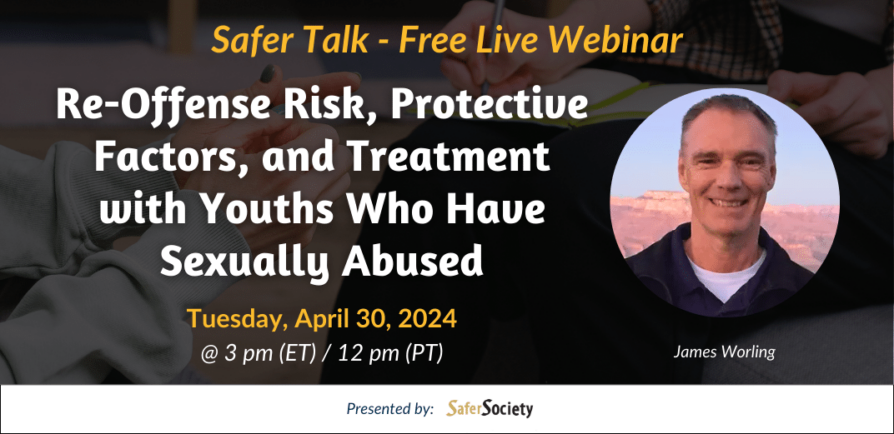Decades of research have consistently refuted the misconception that adolescents have a high rate of sexual re-offending throughout their lives. Join professor and researcher Dr. Patrick Lussier and host David Prescott as they discuss the disconnect between societal beliefs and reality on this topic.
Strategies for Healing in Sibling Sexual Abuse Cases
In this webinar, host David Prescott leads a discussion with expert Linda Valenta regarding her innovative approach to addressing sibling sexual abuse. Her approach centers on fostering accountability, enhancing communication, and facilitating reparation through the joint therapy process. This method, introduced early in treatment, involves both the sibling who perpetrated the abuse and the sibling who was victimized.
An Introduction to Blending Motivational Interviewing Skills with Solution-Focused Brief Therapy
In this hour-long webinar conversation, Dee-Dee Stout offers a brief overview of how MI and SFBT can be integrated by professionals into a strategy for ensuring the most lasting change among clients in the shortest amount of time. Dee-Dee expertly addresses key considerations, such as the therapist’s role, the focus of the conversation, and the strategic use of scaling questions. Her insights equip attendees with a basic understanding of the approach and how it can be tailored to diverse clinical settings and populations.
How Trauma Survivors Envision Justice
In this webinar, Judith Herman discusses the results of her research and practice across many decades. It has involved listening deeply to survivors and understanding their core needs for acknowledgment of the abuse, accountability, apology, and amends. Dr. Herman also discusses the strengths and limitations of current responses to abuse, such as restorative justice and treatment programs for those who commit acts of violence.
Dayna Altman’s Recipes for Healing
Dayna Altman’s uplifting journey of healing and advocacy is a testament to the transformative power of food. In this upcoming webinar, Dayna shares her personal story of living with depression and OCD, and being in long-term eating disorder recovery. Through her experiences, she has found that food not only heals the body but also has the remarkable ability to connect individuals and communities. Dayna delves into her unique recipes for healing, emphasizing the role of food as a source of hope and wellness.
Re-Offense Risk, Protective Factors, and Treatment with Youths Who Have Sexually Abused
In this webinar interview, Dr. Worling discusses his work and the evolution of this field. We will explore pivotal lessons learned since the 1980s, offering insights into the nuances of re-offense risk, the significance of protective factors , and the distinct differences between adolescents and adults who sexually abuse.

